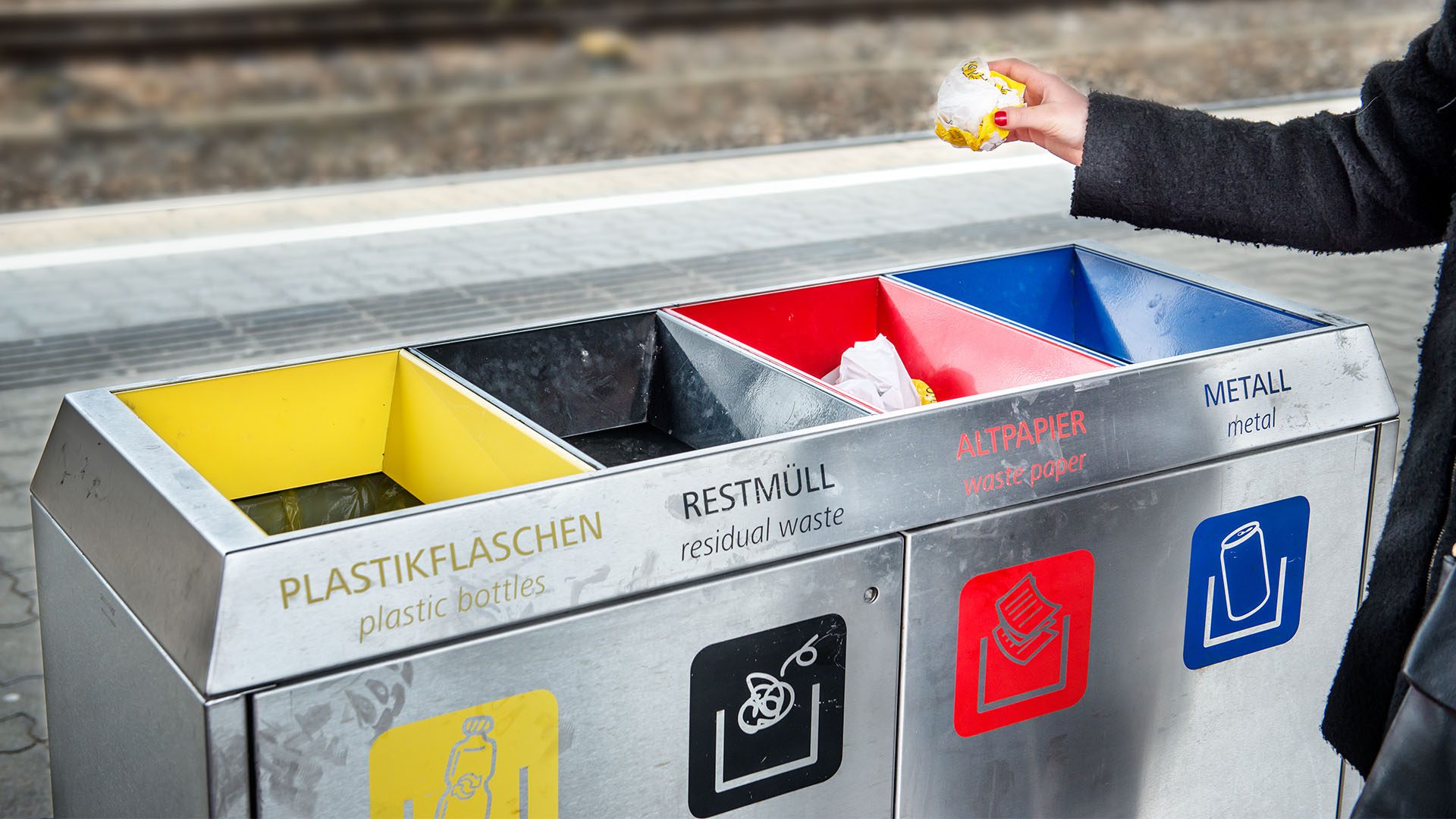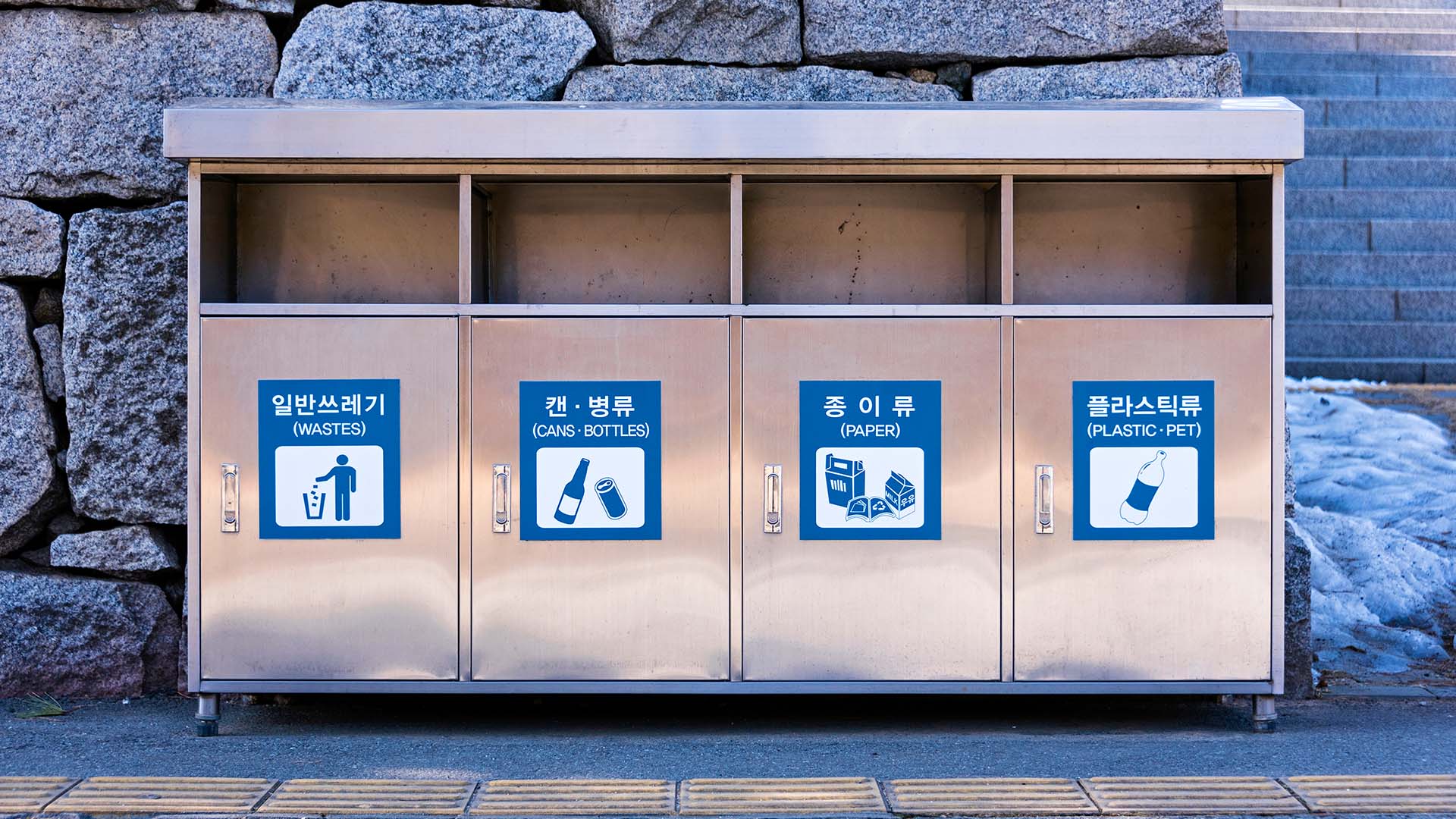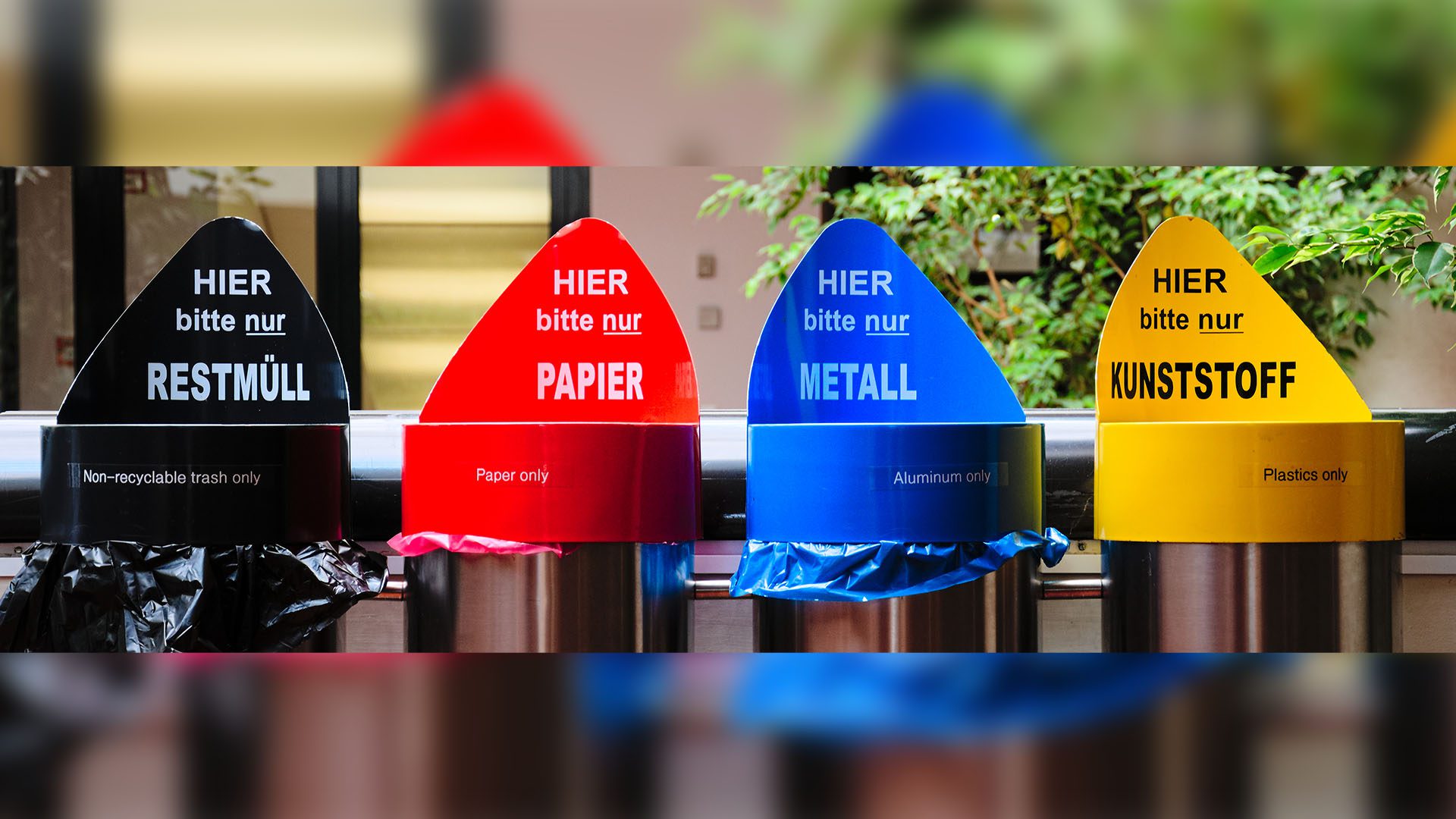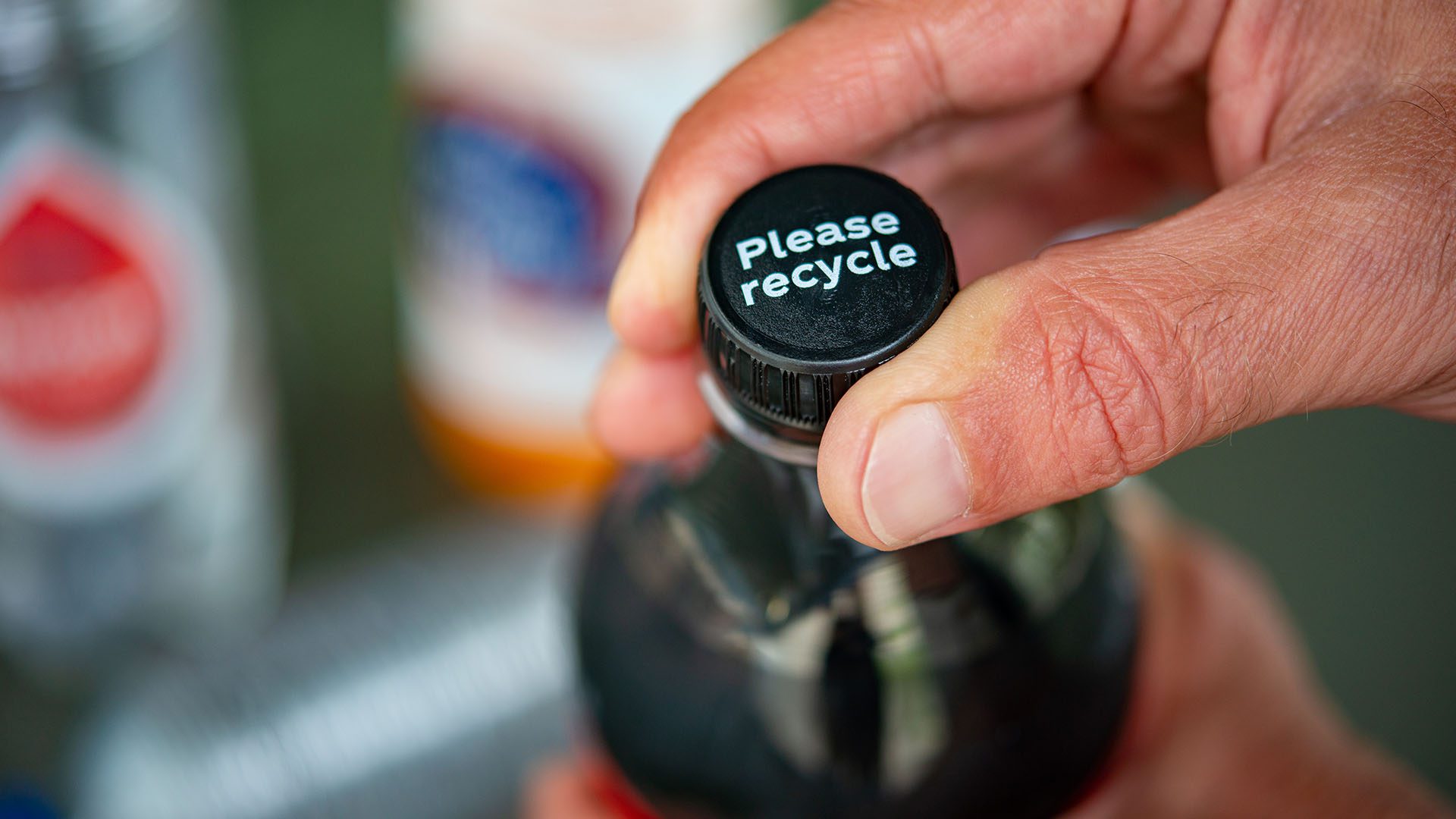Countries around the world are continually finding new and innovative ways to implement eco-friendly recycling policies. Here we’re highlighting some of the top recycling countries around the world and their successful and sustainable initiatives.
Germany

According to a recently published report by Statista, Germany recycled 67.1% of all municipal solid waste in 2020. With the highest recycling rate in the world, Germany’s journey toward sustainability began in 1990 when a packaging audit was conducted in order to reduce the potential rise of landfills. After policymakers made producers responsible for their packaging waste, manufacturers created “The Green Dot” program, the first duel recycling system in the world for collecting waste from households and businesses.
Additionally, in January 2019, Germany introduced the German Packaging Act, which holds businesses responsible for the environmental impact of packaging waste and encourages retailers to promote eco-friendly products. Germany is also involved in the Circular Economy Action Plan, which encourages the use of sustainable products by restricting single-use products and banning the destruction of unsold durable goods.
South Korea

With a recycling rate of 59.7% in 2020, South Korea has implemented policies that include the banning of both colored plastic bottles and PVC by 2020. It has also pledged to reduce and eventually eliminate disposable cups and plastic straws by 2027. Additionally, in February 2020, South Korea’s environment ministry published a general policy with the goal of reducing waste paper products and improving the domestic recycling practices for plastic bottles.
The country’s government has set an overall goal of collecting 100,000 tonnes of plastic bottles per year beginning in 2022. They have also transformed their food waste recycling practices, going from a food recycling rate of 2% in 1995 to 95% in 2020. They did this by implementing a food waste fee where households pay a small monthly fee for each bag of biodegradable food scraps.
Austria

Austria has implemented a blanket ban on certain waste types going into landfills. With an impressive 59% recycling rate in 2020, the country has banned any product that has a total organic carbon emission rate of more than 5%. As of March 2020, manufacturers in Austria were banned from importing or selling certain types of plastic bags. An additional ban on retailers issuing these plastic bags in the country was implemented by June 2020.
Netherlands

Although the Netherlands achieved a substantial 56.8% recycling rate in 2020, they have goals to become even more sustainable as the Dutch government has pledged to achieve a fully circular economy by 2050. Their projected plan involves five transition agendas: biomass and food, plastics, manufacturing industry, construction, and consumer goods. The plan calls for producers and importers to take responsibility for the waste their products produce, which will incentivize them to encourage manufacturers to make their products sustainably. Additionally, the plan proposes more companies turn toward circular design for products, meaning designs that are easy to reuse, repair, and recycle which prevents waste.
The Netherlands government has also called for targeted price incentives, which involve higher prices for products whose production is bad for the environment and financial benefits for companies that use their resources sustainably. These market incentives would encourage companies to utilize recycled or bio-based materials while also incentivizing consumers to choose sustainable products.







